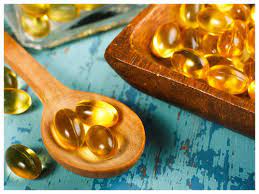Exploring the Role of Omega 3 in Helping Prevent Premature Births
Introduction
Being an expectant mom, you should do anything you can to make certain a healthy carrying a child. You have your prenatal vitamin supplements, you tune in to your doctor’s advice, so you care for oneself. But have you considered your daily diet? What you eat in pregnancy is equally as significant as whatever else you do for your health. In fact, you are ingesting for 2!
One essential nutritional for expecting mothers is omega-3 fatty acids. Omega-3 essential fatty acids are crucial for the growth of the baby’s human brain and eyeballs. They will also help avoid untimely delivery. So just how do you make sure you’re receiving enough omega-3 essential fatty acids in your diet? Here are some tips:
1. Consume a good amount of unhealthy sea food
Fatty sea food like salmon, tuna, mackerel, and herring are all excellent types of omega-3 fatty acids. Attempt to eat out at least 2 servings of species of fish per week. If you’re concerned with mercury coverage, don’t worry—you can still have the omega-3s you will need by eating canned light-weight tuna or salmon, shrimp, Pollock, catfish, or tilapia.
2. Add more flax seed to the diet plan
Flaxseed can be a plant-based omega 3 (식물성오메가3) supply of omega-3s. You can add soil flax seed to drinks, natural yogurt, oat meal, or baked merchandise. Or try sprinkling whole flaxseeds on salads or broth.
3. Use organic olive oil or canola gas when food preparation
Essential olive oil and canola oils are loaded with monounsaturated fats, that are a form of healthy extra fat. Monounsaturated fatty acids will also help raise the consumption of omega-3s. So prepare with extra virgin olive oil or canola essential oil whenever possible, and drizzle extra virgin olive oil on salads or fresh vegetables as a getting dressed.
4. try to eat ovum enriched with omega-3s
Some ovum are now enriched with omega-3s due to the add-on of flax seed or species of fish fats on the hen’s diet regime. Look into the label on egg cartons to determine when they are enriched with omega-3s—these ovum are usually pricey than regular ovum but they’re worth the cost!
5 Go on a dietary supplement If you don’t think you’re acquiring enough omega-3s in what you eat, speak with your medical doctor about having a supplement. Omega-3 nutritional supplements can be purchased in supplement type or as beverages.
Summary:
Incorporating Omega3 essential fatty acids into the diet regime during pregnancy is very important for the growth of the baby’s mind and eye They will also help protect against untimely birth By following these easy suggestions, you can make positive you’re getting enough omega-3s in your daily diet!


